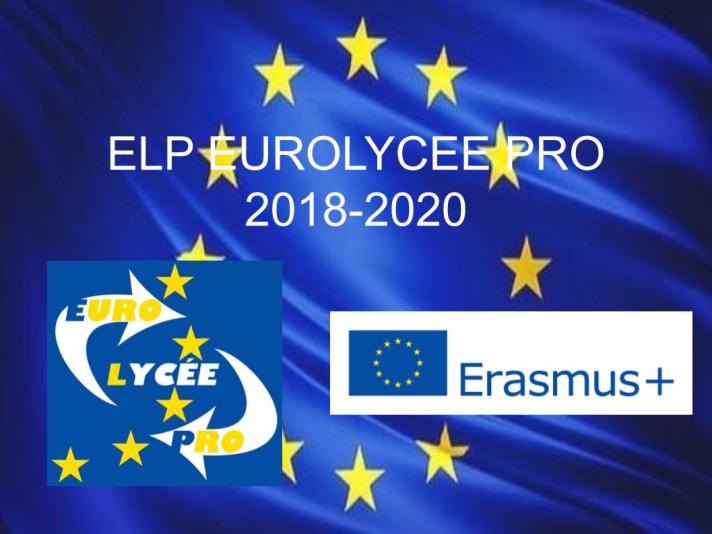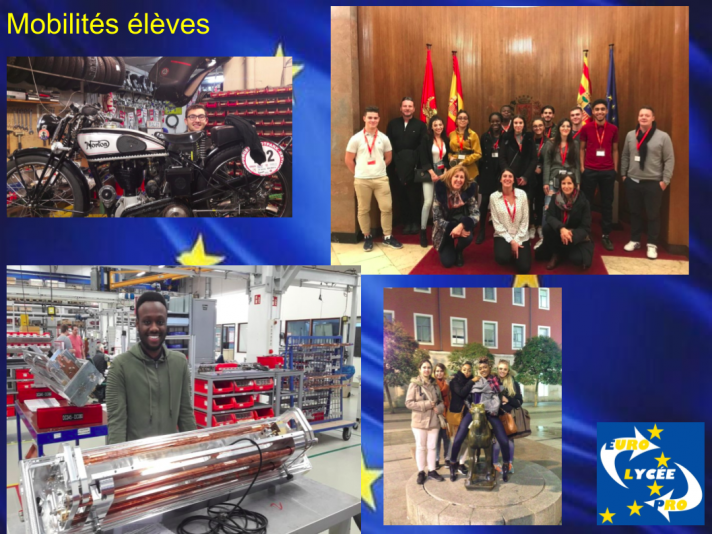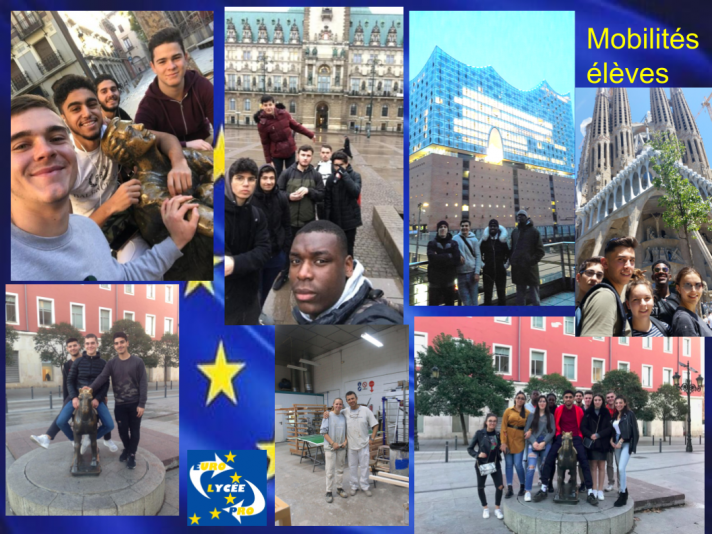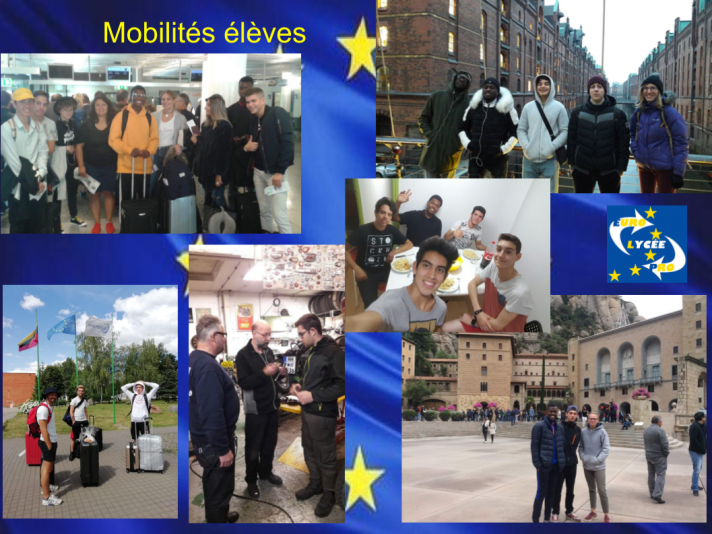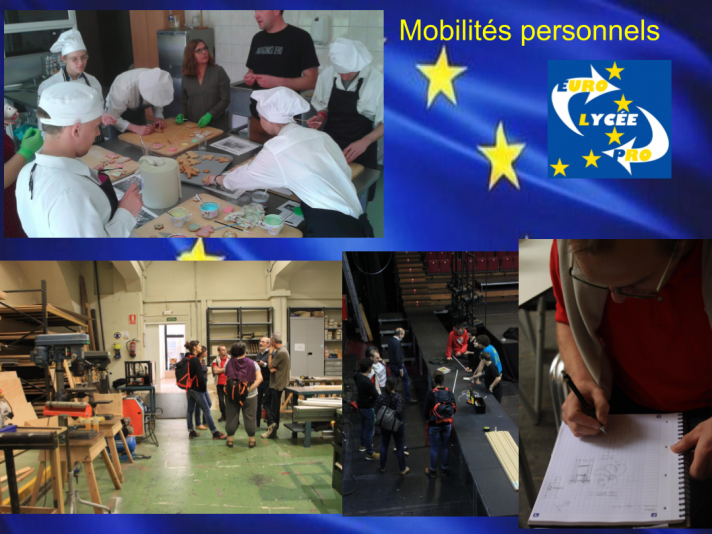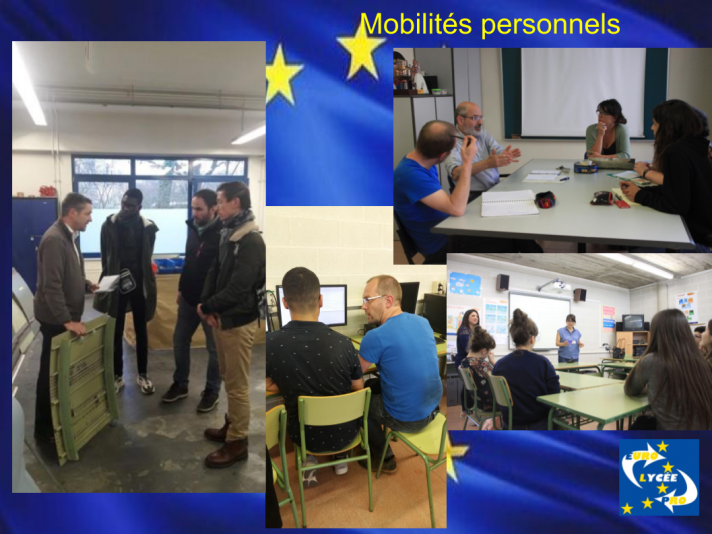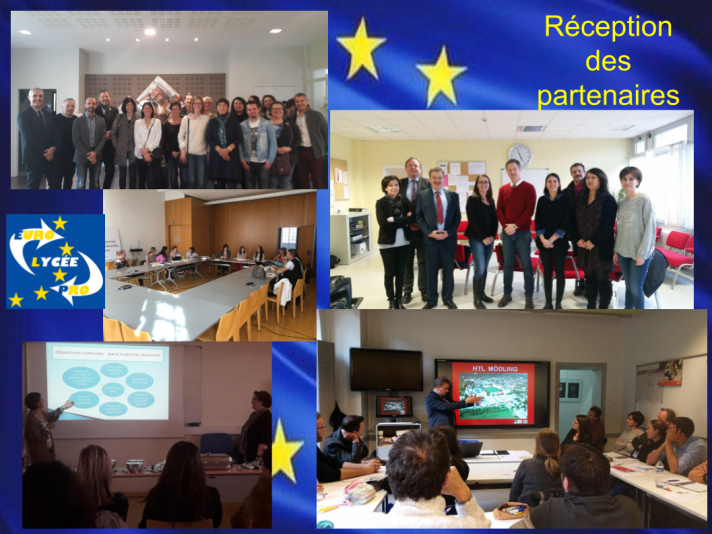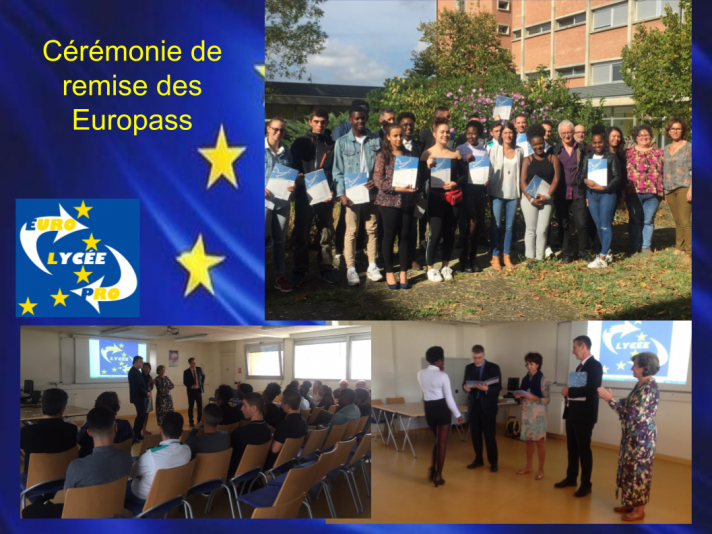Topic(s) addressed
The consortium aimed to promote European employability, the emergence of European citizenship, and the need for lifelong learning as a factor for social inclusion. With regard to learners, the consortium’s goal was to address social inequalities by promoting mobilities for discriminated groups (girls, socially disadvantaged categories, newcomers, etc.); reducing student dropout, revitalising students through meaningful vocational training, and improving their exam results through renewed teaching practices (with the aim of an 80% vocational baccalaureate pass rate). Other goals of the consortium were to improve learners’ language skills so they attained B1 in the CEFR; identify and personalise students’ education and orientation paths (especially for post- baccalaureate studies); contribute to improved professional integration by developing their geographical, professional and social adaptability; develop accountability through learners’ empowerment; broaden their cultural horizons and awareness of ‘otherness’ through immersive experiences; and, to teach European citizenship and strengthen the dissemination of the French language among partners.
Staff goals on the other hand were to internationalise the policies of consortium institutions; develop transnational exchange between partner organisations towards strengthening the links between different territories; boost the emergence of experimental teaching methods through feedback effects, exchange, and mutualisation; to know, compare and understand European educational approaches in order to implement innovative practices; to better understand the socio-cultural background of new partner countries; encourage multidisciplinary work and job motivation; improve staff language skills in a foreign language; increase the profile and visibility of vocational education among schools in general; and, to expand the existing partnership network and develop opportunities for mobility.
Target groups
The project’s beneficiaries were students aged 16-20 from the Tertiary and Industrial Vocational Baccalaureate’s Première and Terminale classes. Comprising French, Togolese, Portuguese, Spanish, Algerian, Ukrainian, Guinean, Congolese, Romanian, British, and Italian students, a majority of the beneficiaries were from disadvantaged socio-professional backgrounds – 60% of whom were grant holders. The staff consisted of French teachers between the ages of 30-60.
Methodologies
The consortium’s dialogue-centric approach led to a process that favoured a multidisciplinary and collaborative approach with institutions, the consortium, and its international partners, which allowed for the sharing of learning and teaching practices using a reflective approach with respect to methods and tools. Furthermore, learners were expected to meet the formal criteria as set out in their respective reference frameworks on key skills (professional know-how, positions, and attitudes), with mobility adapted to students’ learning needs. The project was designed in such a way so as to enhance participant initiative in the search for solutions, thus encouraging self-sufficiency while respecting the constraints found within the teamwork environment (assessment of non-formal skills). The increase in participants’ levels of self-sufficiency was then measured by their ‘sponsors,’ which included teachers, tutors, as well as a self-assessment spreadsheet. Informal skills that were attained during the training and mobility periods, such as mutual help, solidarity, and social skills were also assessed, with comparisons made between the assessment made by trainers, and students’ self-assessments. The multimedia tool used during the project was not designed to be innovative in nature; rather, it was its shared use by participants (due to its collaborative approach) that imbued it with an innovative dimension with regard to the educational process. An EVCET experiment carried out in Portugal indicated strong learner impact in problematic situations, with skills assessment de-contextualised from the training reference framework; moreover, EVCET provided a truly collaborative approach among different participants. Lastly, the implementation of a number of activities, such as a student logbook, digital cultural treasure hunts, and the ‘selfie’ challenge, helped increase awareness among students as being European citizens belonging to a European territory and culture, with their self-assessments not only granting them a significant role in their mobility project, but also in their future career choices.
Environments
The project’s collaborative nature, which was based on the sharing of practices, was a major asset with regard to its methodological considerations, with the sharing of teaching activities between groups and teachers of different nationalities providing a number of learners with positive self-image. The use of the eTwinnings platform as well as multimedia tools (computers, tablets, smartphones) fostered collaborative projects between learners, while the hours dedicated towards the mobility’s preparation (European sections, individual support, language assistants, partnership with the Goethe Institute) naturally encouraged learners to assume responsibility for their own learning, which accelerated the process of autonomy and accountability acquisition.
Teachers
Teachers participated in this project with a number of goals in mind, which included understanding and evaluating their adaptability to other methods, and the experimental application of the same in teaching practices; sharing these methods with the community through the use of social media platforms; improving their practical and technical language skills, with several capitalising on this experience to prepare themselves for Non-Linguistic Subject (NLS) certification; and, building teamwork by boosting partnerships and strengthening learner support and mobility activities. Staff mobilities facilitated and hastened the education innovation process through ‘job shadowing,’ itself a crucial element to the development of professional and amicable relationships – the driving force behind projects aimed at continuous improvement. The feedback that was gathered from these mobilities worked in tandem with the self-inquiry of one’s one teaching practices, both of which focused on pedagogical excellence and the stimulation of the school community.
Impact
The project’s implementation of innovative practices facilitated an increased desire for learning, and improved empowerment and self-esteem among participants; eased professional integration and job offers across host countries; resulted in a significant improvement of learners’ language skills as a result of weeks-long language immersion; increased the number of European projects across consortium schools such as the 3 KA2 projects on stereotypes, prejudices, and gendered representations in the building industry, and the 7 eTwinning projects; and, facilitated the provision of guidance for middle school students towards the vocational stream as well as shifts among first-year high school students to vocational schools (indicating a reduction in negative perceptions of vocational education, which makes them ideal candidates for mobility programmes). Other impacts from the project included the propagation of a cultural approach of international openness, that is, being ‘porous’ to other school types (including polyvalent high schools); the expansion of teaching teams that are involved in schools’ European projects; increased motivation for the teaching profession; the formation of stronger familial bonds; the perpetuation of the partnership network and the establishment of long-term reciprocity; and, the enhancement of the European dimension within projects belonging to the consortium’s schools, with each school project now including a section dedicated to European (and international) expansion. As a result of this last consideration, one of the consortium’s schools was awarded the recognition of being a "European Parliament Ambassador School," with 4 other schools having been granted the "Euroscol" label. The consortium disseminated its activities at the local, regional, and international levels through participating institutions’ digital environments, local press networks, as well as through its website and social media platforms. The project’s broad dissemination increased the European ‘momentum’ among members of the educational community by instilling in them the desire for the development and intensification of mobility experiences. Furthermore, the dissemination of the project’s ‘good practices’ across schools increased students’ awareness on the importance of geographical and intellectual mobilities for success. Lastly, participating schools’ image and social landscapes were also enhanced, resulting in their heightened appeal and increased course enrolment due to courses’ emphasis on the European dimension.
- Reference
- 2018-1-FR01-KA102-047577
- Project locations
- France
- Project category
- VET schools
- Project year
- 2021
Stakeholders
Participants
Associação de Formação para a Industria (ATEC)
- Address
- Portugal
Athlone Institute of Technology
- Address
- Ireland
Berufliche Schule Stahl-und Maschinenbau
- Address
- Germany
CPIFP San Lorenzo
- Address
- Spain
Escuela de Bellas Artes
- Address
- Spain
HAK/HAS/AUL Neunkirchen
- Address
- Austria
HTL Mödling
- Address
- Austria
IES Politécnico Jesús Marín
- Address
- Spain
IES Valle del Cidacos
- Address
- Spain
Institut Castellet
- Address
- Spain
Instituto de Educación Secundaria Santiago Hernández
- Address
- Spain
Istituto statale di istruzione secondaria superiore "A. Damiani"
- Address
- Italy
Kauno technikos profesinio mokymo centras
- Address
- Lithuania
Stichting Regionaal Onderwijs Centrum's-Hertogenbosch
- Address
- Netherlands
TÜV Nord
- Address
- Germany

